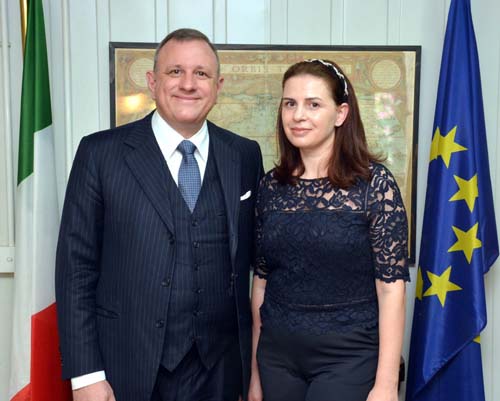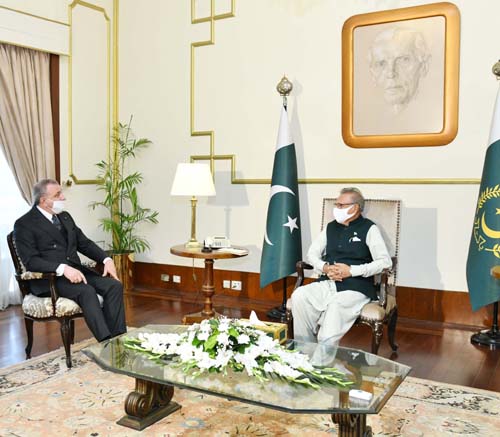
Italy wants to beautify, develop GB: Ambassador Andreas Ferrarese
Newswire
Islamabad: Italy’s Ambassador to Pakistan Andreas Ferrarese this week said that his country wanted to play a role to beautify and develop the Gilgit-Baltistan.
In a meeting here with GB Chief Minister Khalid Khurshid, the envoy said Italy will co-finance the Economic Transformation Initiatives (ETI) and invest 20 million Euros in the project.
“Both the leaders discussed tourism, climate change, village-based development and private sector investment in power generation,” said an official statement.

Ambassador Ferrarese said Italy was a close friend of Pakistan and there was a vast potential to enhance trade and business ties.
Italy and Pakistan had earlier signed an agreement for ETI Gilgit-Baltistan amounting to 20.5 million euro. This is 28 years facility with 10 years of grace period and zero percent interest rate.
Under the ETI Programme, Government of Italy will provide infrastructural support, capacity building and technical assistance for the value chain of key agricultural products to the benefit of rural communities of GB.
GB is a remote mountainous region, less population with comparatively higher incidence of poverty. Agriculture productivity is generally low due to poor access to quality inputs, huge post-harvest losses (45% for apricot and 10% for potato), lack of local processing and value addition and poor access to markets.
ETI Gilgit-Baltistan, is the largest developmental programme of Gilgit-Baltistan government. International Fund for Agricultural Development (IFAD) is providing USD 76 million over a period of 7 years. Italian government has agreed to join hands with IFAD providing a soft loan of Euro 20.5 million to be utilized for financing the programme activities.
The objective of this programme is substantial increase in irrigated crop areas and production and improved connectivity with markets through investments in economic infrastructure. This programme will improve incomes and reduce poverty and malnutrition in rural areas of Gilgit-Baltistan region benefitting around 100,000 rural households.
